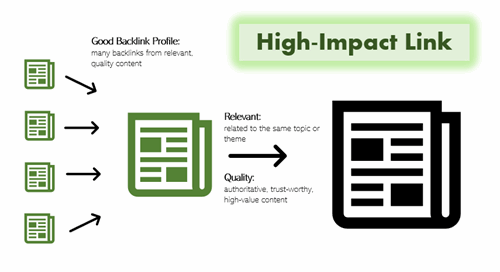Many of us want to be self-sufficient and mortgage-free for the whole of our life.
If yes, then, you are in the best place as in this article we are going to learn how we earn lots of money while sleeping with affiliate marketing.
Before we move ahead, we are going to learn some basic concepts in a very short manner.
- What is affiliate marketing?
- How we can make money while sleep with affiliate marketing?
- Why it is important to shift from active earning to passive earning?
What is Affiliate Marketing?

Affiliate Marketing is nothing but a way to promote a company’s product on behalf of the company and you will bag instant or recurring commission ranging from 1% to 80% of the product.
In another word, it’s a type of sales service you offer to a company. For this service, you will get an amount in form of a Commission.
This commission makes affiliate marketing a way to make money while sleep.
Let’s talk with an example:
You have to buy land for your dream home, it’s a very time taking job. So, you hired a broker for this work. The broker will find the land and make a catalogue to present those lands in front of you. Out of those land, you need to select your dreamland. After selection, you pay the checks to the owner and the land is now yours.
For all these works, you need to pay some amount of money ranging from 5% to 80% to the broker.
This scenario usually repeats in affiliate marketing.
In this case, the broker gets a one-time settlement amount while in our case we make recurring money from the same referred person.
This all happened because the broker normally referred a physical asset that requires only one-time payment while you bring a customer to the company.
Thus, you Make Money While Sleep with Affiliate Marketing.
How we can make money while sleeping with Affiliate Marketing?
Before my carrier as a YouTuber(My Channel) or blogger, I research how I can make money while I sleep without any investment. The answer that comes in front of me is affiliate marketing.
So, I started to make research on “how to start affiliate marketing with no money?“.
I do not find any solution to this question but I get a solution. The solution is I can make money with very little investment ranging from INR 1000 to INR 5000.
For this amount, I need to buy hosting as organic traffic is going to be the force that will derive sales for the product I promote.
So, I try
Out of these hosting, currently, I am using
A question might arise in your mind “why I illustrated this whole story?”.
There are two scenarios that come when a guy started affiliate marketing. These two scenarios are
- have money;
- doesn’t have enough money
The whole business of affiliate marketing is money intensive work.
For Example:
- It usually costs me approx 21$ for every sucessful conversion of the cloudways hosting and give a return of 180$.
- Semrush’s affiliate cost me 549$ for every conversion and give a return of 2800$.
Do Not have money:

This section is for those who don’t have money. If you have money please move to the next section.
Either you have money or not. The primary focus is to generate sales for the products you promote.
Search Traffic (SEO or organic traffic) is going to be the driving force for your affiliate marketing.
To drive traffic, you need to create content related to the product.
For Example:
You want to promote
After the successful creation of videos or articles that relates to the product, you need to rank the article in the search engine.
This whole can take lots of your time and effort. If your article ranks in the search engine, you will gain free traffic from the search engine. This free traffic helps you to grow your audience and conversion of your affiliate product.
After a stage, you can make this whole phenomenon become an autopilot process. When the whole process is in auto-pilot mode you started to make money while sleeping by affiliate marketing for very little investment.
Have Money:
If you have the money, start promoting the products through CPA ad campigns. You need to pay the advertiser only when any user signup to the product you are promoting.
Scale it multiple times. Then, put it auto-pilot mode.
Thus, you started making money while sleeping.
Why it is important to shift from active Earning to Passive Earning?
According to me, this is the most important question for this article. Why do I say this?
Let’s talk with an example:
You are promoting hosting service from a company that works on CPA. If you help to make a single sale, then, you are going to earn $50 to $60 in a form of a one-time settlement.
If you get paid until the life of the customer you referred to the company. The amount you can earn will become multifold in respect to CPA. The earning potential of the CPA based affiliate vs conversion vs affiliate is more than 80 times.
This recurring payment is popularly known as passive earning.
Reason: Why We Should Start Affiliate Marketing?
In this section of the article, we are going to learn “why we should start affiliate marketing?”.
There are lots of reasons that tends you to start Affiliate marketing. Some of these reasons are discussed below in a detailed manner:
Great User Exprience:
The websites which use affiliate marketing in Place of ads (Adsense) look flaud to its users.
For Example:
A person appear on a website which has adsense enable use to spend about 150s on average while if the website is powered by Affiliate product, then, the average user time in your website is 350s.
This average increase in average watch time suggest me the user has greater user experience at Afiiliate based website in respect to adsense based website.
Easy to Setup:
If you want to get approved from the major ad network. Then, it may cost you more than 2 weeks. While I you want to get approved for affiliate product, you will get approved instantly.
After approval, you need to setup the codes to your website.
For adsense approved website, the whole setup process cost you more than a month while at affiliate product – you will get a URL. The setup of this URL usually cost you only few seconds.
Easy to Expand:
With a great user experience, you can create and expand your website with no time. As a great user-exprience brings more trust on your domain.








